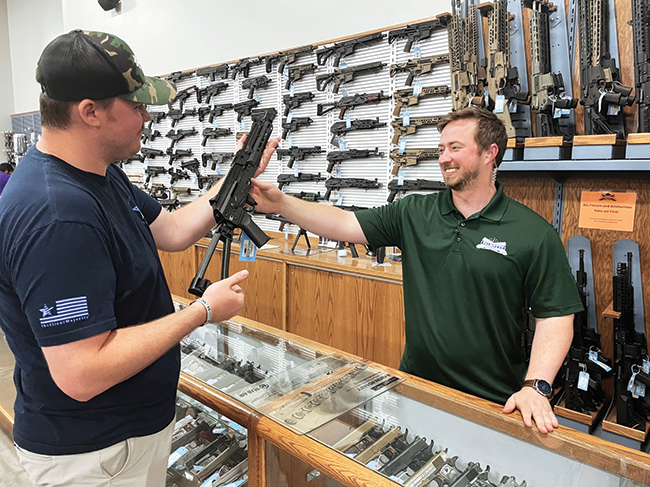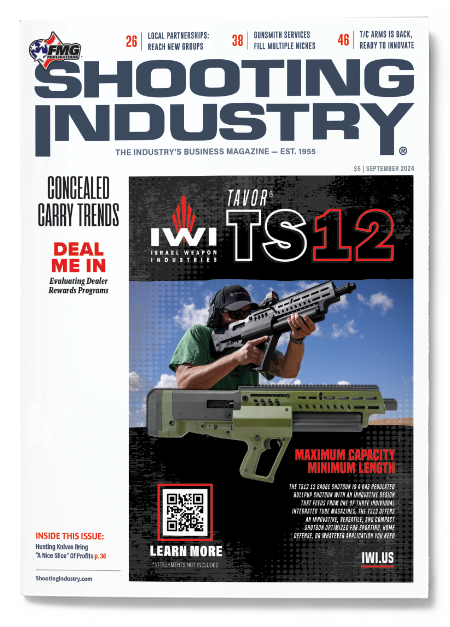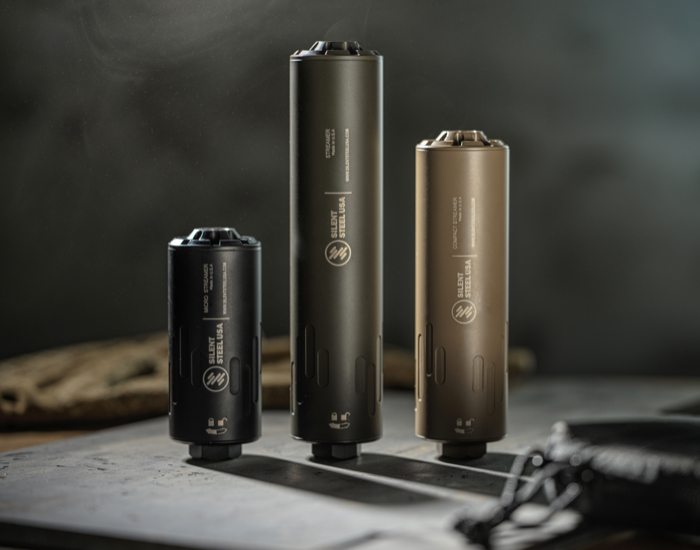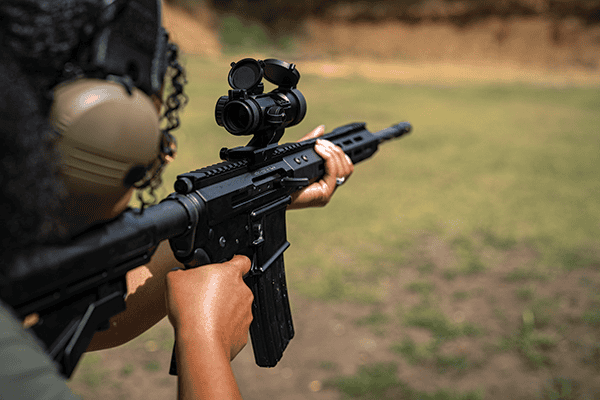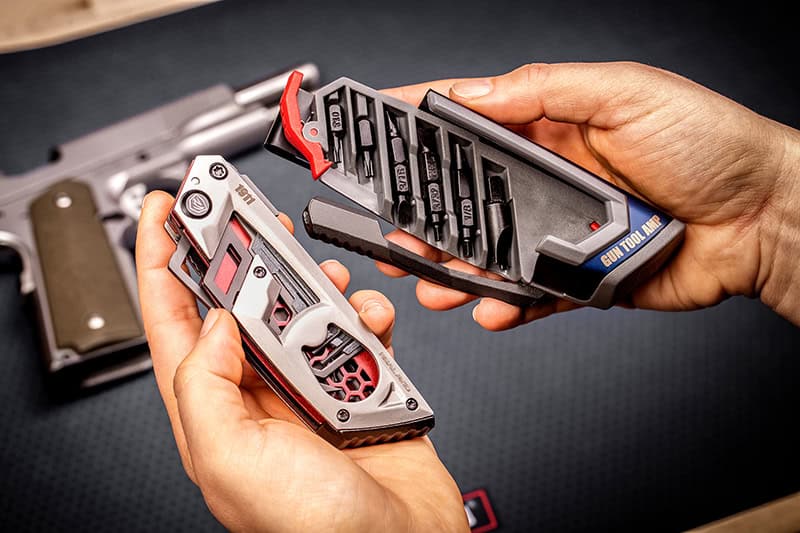Deal Me In
The Advantages Of Dealer Incentive Programs
It might have the makings of a joke: A customer walks into a shop with no idea what he or she wants and asks the counter staff their opinion. There’s no punch line, of course, but the customer’s follow-up questions are almost certain to include, “So, what do you like?”
Chances are good those who have been working the counter long enough have developed some favorites, and likewise some biases. For manufacturers in any industry where their products are sold at retail it comes with the territory, but in the world of firearms, the customer likely also expects the sales staff to be familiar with a range of products.
This is where dealer incentive programs are increasingly crucial. They can help ensure the sales staff is educated on the products — even more importantly, enable those on the sales floor the opportunity to acquire a firearm that might otherwise be out of their budget.
“Ultimately, for those just getting started in the industry in sales, buying a $4,000 to $5,000 firearm isn’t feasible,” said Mike Waugh, purchaser for RifleGear, a brick-and-mortar retail and e-commerce business in Fountain Valley, Calif. “The pro deals and incentive programs can help get the firearm in the hands of salespeople. They then use the gun, they get excited about it and they share that enthusiasm with the customer.”
This point is echoed by Raleigh Whalen, director of sales at Weatherby. He told Shooting Industry the company launched its dealer incentive and training program this past April, and it is already seeing success.
“With our dealer incentive program, salespeople can earn points that can be used toward a purchase,” shared Whalen. “But part of our incentive program is how it can be used alongside our short training videos. These enable the salesperson to be more knowledgeable about our products. And we have to remember today’s customer is already more educated than ever because of what is out there on the internet, so our training videos help keep the sales staff up to speed.”
Strengthening The Critical Link
Firearm sales have remained strong since the pandemic, when the industry experienced a lot of growth from first-time buyers. Even now, there remains a mix of customers with different knowledge bases — some will walk into a shop knowing exactly what they want and others need more assistance.
It is the latter type of customer where incentive programs are so important, as they can help ensure the brand is presented as an option.
“We see incentive programs as helping point the customer in a good direction,” explained Patrick D. Hulon, retail operations manager at Palmetto State Armory’s Greenville, S.C. location. “It also helps get something in front of the customer they might not have considered otherwise.”
Yet, it isn’t about pushing the customer to something they may not want.
“This isn’t about taking business from other brands; this is for the vast majority of customers who walk into a shop and are completely undecided,” suggested Nathan Schueth, director of sales and business development at Heckler & Koch. “When that customer who doesn’t know what they want walks into a shop, they’re prepared to get an education. They’re going to be offered options, and we’re hoping to be one of those three to five options. Incentive programs are already here to stay. They are yet another ‘tool’ in the ‘tool belt’ of a competent sales staff. The key is to pick the right tool for the job!”
Not Pushing Toward The “Wrong Product”
What incentive programs should not do is encourage sales staff to push products that aren’t right for the customer or fail to meet their needs. This isn’t going to result in repeat customers, and it certainly won’t build brand loyalty for the store or the gun manufacturer.
“We understand many first-time gun buyers may not even have a clue what they want,” said Waugh, who was also a sales associate with RifleGear for five years. “Working for a non-commission-based company, which is most salespeople in the gun industry, the reward system shouldn’t interfere with the integrity of the business.”
Liam Melugin, a sales associate and laser engraver at RifleGear, also offered his thoughts as someone in the proverbial trenches. He recently received an HK MR556 rifle from the incentive program and was already well-versed in it before he was able to acquire it.
“I like to keep my knowledge base very diverse,” he shared. “I also tend to ignore the incentive programs when it comes to making the sale. I may include a firearm that’s part of a program, but I don’t go out of my way to push it more than I would any other.”
It’s likely newer employees may believe there is a quick route to the bonuses, and as a result, may tend to focus too much on incentive programs.
“Some salespeople don’t use them in the way they should,” Waugh acknowledged, “but they’re the minority. You’re not going to be a good salesperson if you push a product that doesn’t fit the customer’s needs.”
Shop managers therefore need to stress to salespeople that firearms buyers are often repeat customers and long-term relationships are better than just a quick sale. This fact is especially important with a first-time buyer.
“We do address this with our staff,” confirmed Hulon. “We need those first-time customers to leave satisfied and to be repeat customers. We’d like them to come back and buy from us.”
The Complaints — Because No System is Perfect
In an ideal world, the dealer incentive programs would be entirely without any problems. Yet, things are never as perfect or ideal as we’d often like. There are a few shortcomings with incentive programs, brought on by concerns over customer privacy.
While the programs typically allow the sales staff to earn points by uploading a copy of the receipt, some may require a bit more personal information from the customer. Some buyers will happily share/post/tweet, etc. a photo of their new purchase all over social media and brag about it to everyone who will listen. Yet they may not be comfortable providing personal information to the staff — beyond what is required by law, of course.
“The only downside I see with incentive programs are those requiring us to provide personal information from the buyer,” said Waugh. “Even when customers fill out the paperwork, they may not want to provide additional information that could be sent to the manufacturer. This can result in a sale where the points didn’t count toward the incentive program.”
Future Brand Ambassadors
A final consideration about incentive programs: They help put higher-end products in the hands of sales associates, who will likely be more knowledgeable and experienced with the firearm. Those individuals will become de facto brand ambassadors, influencers and evangelists for a brand.
“Weatherby has been an elite brand going back to Roy Weatherby’s days,” noted Whalen. “Many of the firearms are out of the price range of a lot of consumers, and the counter shop guys often can’t afford them either. The points program gets our rifles and shotguns with our logo in their hands, and we understand they’ll talk their friends, take the gun to the range — which is another part of the marketing effort.”
Whether working toward their next firearm or not, incentive programs can help inspire and motivate sales associates. It can encourage excitement.
“It makes the product aspirational,” said Schueth. “Once they have it, that salesperson will understand its value all the more, and while I don’t like the term, they’re the ‘community influencer’ for the product, and they become the local expert for the brand.”
In other words, incentive programs are a key component of firearms marketing that will pay dividends for years to come.
“We realize after all the marketing has been done, all the advertising out there and all the reviews, the person behind the counter remains the crucial link in getting the product in the customer’s hands,” explained Whalen. “The more they know, the better they can do in making a sale.”
Dealers: What rewards programs have been worthwhile for your sales teams? Weigh in! comments@shootingindustry.com

